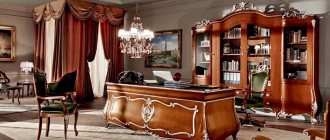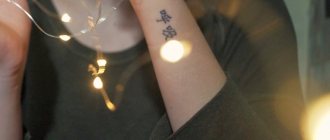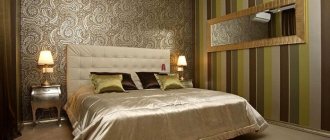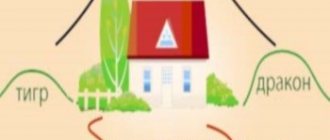The Feng Shui floor is a relatively new concept, because large multi-storey residential buildings began to be built relatively recently - about 200 years ago. And the art of Feng Shui is more than 3 thousand years old .
Also, initially Feng Shui was used for a private house, which has its own entrance or entrances. In multi-storey buildings, the entrance to all apartments will be considered the entrance to the entrance.
Of course, the Feng Shui of a private home will be more correct and more favorable. Here we have our own space, and we can also change it. But the reality is that in our time there is a very large number of urban residents and the trend towards their increase will continue to be observed.
There is a lot of debate about where it is better to live - in the city (in houses with many floors) or outside the city (small town) in your own private house. In such disputes, the truth, as always, will be somewhere in the middle. In both cases, you will have to sacrifice something: a more promising job in the city - perhaps a less good one in the village, a school for the child, clean air outside the city and less clean air in the city, and so on. There is no clear answer. True, if you look at rich people, they still strive to have their own home. There is an opinion that living in a private house has a different effect on children during their development and education - they believe that such children grow up more successful . But there are also many smart children in cities. But the fact remains that wealthy people choose a private house in the suburbs. Suburban living – cottage towns – is also highly developed in America. But the infrastructure there is well developed. And accommodation will not be cheap.
The reality is that many people live in the city in multi-story buildings and on different floors.
How can Feng Shui help in choosing a house and floor?
The first 2 points will be the same for both a private house and a multi-storey house. And they are the ones that determine the auspiciousness of the house and for those living in it.
1. Location of a multi-story building - where the house is located relative to natural objects (mountain, river, lake, road, park, forest, swamp, etc.) and man-made (other houses, factories, schools, bridges, cemeteries, hospitals, etc. .d.). This point will determine the total quantity and quality of the favorable Qi energy that both homes and people will receive. More details here .
2. Direction of the entrance to the entrance of a multi-storey building. This parameter will determine the quality of energy that will come to the house in a particular year. And this, in turn, will determine the favorable or unfavorable influence on the residents of the house this year - their successes, endeavors, health, etc.
Also, this feng shui parameter will influence the ratio of favorable and unfavorable years in the cycle for a given entry . For example, in the 12-year cycle of Chinese animals, a house with one direction of entry will have half of the good years, and another house will have more than half. Read more.
3. Choosing a floor according to Feng Shui.
Before pointing out good feng shui floor numbers, there are a few things to note about choosing a multi-story building.
- It is better to choose a house with fewer floors than with more. If, for example, the house has 24 floors, then it is better not to choose the lowest and highest floors . In the first case, it will be considered that the house puts too much pressure on the residents, and in the second, there is a weak influence of the earth (it turns out to be “cut off” from it), and less energy reaches.
- The following are “unfavorable” numbers among different nations. In China, for example, this is the number 4 (4, 14, 34). For us, this is considered a normal figure. We are not very fond of the number 13, but in China it is considered good. In this case, you also need to take into account your attitude to these numbers. If on a subconscious level you believe that the number 13 brings bad luck, then you should not choose the 13th floor, even if according to Feng Shui it is considered good.
Free flow of qi
Qi should be directed so that it passes through the entire room in a tortuous path. The direct movement of qi is usually too fast, and therefore it does not always have a sufficient beneficial effect on the apartment. To correct the direct flow of qi, you can hang wind chimes or bells in front of the doors, which will direct the qi upward. Finally, you can hang two or three mirrors on opposite walls of the corridor or hallway. Qi will seem to flow from one mirror to another, slowing down its beneficial movement.
Try to avoid clutter in your apartment by any means. Heaps of things on the floor, tables and furniture slow down and restrict qi, which leads to stagnation of qi and loss of the beneficial power of this energy.
Qi also stagnates in dark and little-used rooms. Try to ventilate rooms that are not regularly used.
Don’t be lazy to do the following: stand at the front door and look for the farthest corner in the apartment. According to Feng Shui, he is considered lucky. Place an item here that symbolizes your personal element (or the element that precedes yours in the generation cycle).
Let's consider which floors in the house are favorable according to Feng Shui.
Good floors: 1, 3, 6, 7, 8, 9, 10, 11, 12, 13, 16, 17, 18, 19
In Feng Shui, numbers are given the following meaning:
- 1 is a good number in Feng Shui that brings good luck, the beginning. Reads like “ win, honor .”
- 2 – sounds like “ easy ” and is mostly considered not very favorable. The truth, when combined with other numbers, enhances their meaning - both positive and negative.
- 3 – sounds like “ growth ” and “ strength ”. Symbol of beginning and growth.
- 4 – the hieroglyph for the number 4 sounds the same as the word “ death ”. May mean unfavorable changes. When combined with other numbers it is read as an obstacle to good things .
- 5 is a symbol of movement, harmony of the five elements, balance of the elements. In the teachings of Feng Shui it sounds like “ nothing ”.
- 6 is a lucky number, denoting stability and wealth .
- 7 – sounds like “ for sure ”. A symbol of stability , deep knowledge and confidence.
- 8 – denotes the totality of all benefits . In China he is most revered. Success, prosperity, great wealth, abundance, development, growth, etc.
- 9 – denotes longevity, health , divine wisdom.
- 0 is a neutral number . When numbers are combined, it is not readable at all, some think so, others say that zero means the integrity of the world, they consider it a favorable number.
Don't forget what was written above! When assessing a house (apartment), you must first analyze the location of the house according to Feng Shui, its surroundings, and the direction of the entrance. And only then we move on to assessing the floor and apartment.
One more thing. And someone may say: “In an apartment building there are several apartments on one floor and the success of their residents will most likely be different.”
This is because a person’s destiny (his success, life path, favorable profession, finances, health, etc.) is determined by his natal Ba Zi chart (card of the 4 pillars of fate and luck). Both Feng Shui at home or work and the Ba Zi map of a person’s destiny work together . For example, if a person lives in a house with good Feng Shui ( on a good floor as well), then this will strengthen the successful moments in his fate chart and weaken the unlucky ones. A house with bad feng shui will weaken the person’s luck given according to the fate map and strengthen the negative aspects. Therefore, it cannot be said that there is only black and white (extreme success or extreme failure). Luck can manifest itself with more or less force.
Luck given by nature and a good place to live will ultimately bring maximum luck .
Neutralization of unfavorable elements of the apartment in Feng Shui
Inspect the feng shui of the apartment for internal sha. Their sources can be sharp corners of walls and furniture, square columns and ceiling beams. To neutralize such shas, you can rearrange the furniture. A potted plant or mirror will hide the column, and two bamboo flutes suspended from the beam will eliminate its harmful effects.
In two-story apartments, the kitchen or dining room should be located above the living room. Otherwise, the beneficial qi will leave along with your guests...
Apartment Feng Shui does not recommend placing the kitchen, dining room or bathroom in the center of the apartment. After all, the center is a zone of luck, so it is useful for the whole family to gather there. This place is perfect for a living room.
In the apartment
In the modern world, we are in such a society that cosmic energy forces us to look inside ourselves, into the depths of our consciousness. If you don't change your point of view, you'll just remain old. Therefore, at the junction of transition, the cosmos increases vibrations, which requires a strong change from a person.
The Feng Shui system itself implies the interaction of harmony - space, universe, nature, earth. If you think about it, we were given everything for temporary use - the body, the planet (space around us, the earth, trees, stars) - this does not belong to us personally. But all this radiates energy. From it we can draw a favorable, positive state.
Creating a home plan
Therefore, when a person begins to live in this state, and not in the hustle and bustle, getting into stress every day, he begins to feed on this energy, even anywhere in a large metropolis.
If you look at the ancient Chinese sign of happiness, it means a full stomach. That is, to be satiated, nourished. Now China has become saturated and filled the whole world. By setting an example, you work - achieve abundance, harmony, beauty.
This energy has a Yin-Yang balance, that is, a sign that creates polarity. When there is polarity, there is balance. We can even change ourselves within a minute. When we feel this, we live in harmony.
Most people live in huge cities, where a huge amount of energy naturally accumulates, all of it is absorbed into us.
But when we turn off the Yin-Yang balance (we fuss, get irritated), we bring all this home. For example, we came into our house, undressed (all our things were scattered in different corners), - throughout the evening, the night - they emit negative energy accumulated during the day.
Wash everyday items often. Or separate casual, weekend clothes into different closets.
Proper arrangement of your home
How should windows be positioned?
There should not be too many or few windows in the house. It is beneficial when the windows open outwards. If there are few windows, then there will be a lack of sunlight and energy in the rooms. Too large windows and fully glazed walls cause an excess of energy and problems with furniture placement. All this negatively affects the life and health of residents.
Windows symbolize our connection with the outside world, so any problems with windows, their non-standard nature, unreasonable bars affect people's relationships.
Feng Shui welcomes rounded shapes, so arched windows are considered very auspicious.
Rule for the bathroom and toilet of the apartment
The bathroom and toilet are the most unfavorable areas in the house and apartment. It is through them that positive energy flows out of the house if the necessary measures are not taken. So, two main rules:
- If you want to attract success, luck, happiness, love, wealth, money and success to your house or apartment, you need to keep these rooms in perfect, “polished” cleanliness.
- Secondly: no junk or unnecessary things.
In the kitchen, according to the rules of Feng Shui, it is strictly forbidden to place shelves above the dining table (and not only in the kitchen, but above tables in general in the house). The table on which food is prepared must be placed so that the cook can see every individual entering the kitchen. If this is difficult to do, then you need to hang a steel, reflective tray or a large mirror directly opposite the front door so that the cook can see people entering the kitchen and not be scared.
There should be no brooms, brooms or dustpans in the kitchen. The area around the trash can should be clean. In the bathroom, there should also be no visible cleaning products, such as:
- buckets;
- brooms;
- scoops;
- rags;
- mop;
- detergents.
Otherwise, you can’t expect success either in your personal life or in your work.
Also, according to the rules of Feng Shui, if the bathtub is located in a room combined with a toilet, then it should be separated from it by at least a symbolic curtain. Moreover, the lid on the toilet should always be closed, unless, of course, you want all your money to fly down the drain, or, more correctly, to float down the toilet.
It is advisable to find a place in the toilet for a living indoor plant - a flower in a pot (best of all - an orange or lemon tree).
Rule for the hall, living room of a house, apartment
In the hall, the ceiling and walls should also touch at an angle of 90 degrees, but if this does not happen, you need to hang flowers in pots, paintings in the niches, put vases, decorate the niches with fabrics, or simply choose wallpaper in color and texture that would make this transition, imperceptible.
To attract success and good luck into your home according to Feng Shui, place large family photographs on the wall (the family in the photo should be in full force) in an oval or rectangular frame.
The living room must be:
- Spacious,
- Svetloy,
- Cozy,
- No unnecessary furniture,
- Decorated with fresh flowers in pots.
The sofa and chairs should have their backs to the walls, otherwise they will block energy. To attract money and wealth into a house or apartment, the TV should be placed in the far corner of the room. It is advisable that there are no open bookshelves in the room, which entails serious illness, loss of strength and optimism.
LiveInternetLiveInternet
How good it is (from an energy point of view) when a person has the opportunity to choose a site for the construction of his house and has the means to build it! Unfortunately, the majority of people are “huddled together” in big cities and are forced to choose from what is available (and there is not so much!). If, when choosing a site, a person first of all evaluates the impact of external factors, and then moves on to the internal arrangement of premises, then in urban conditions, assessing the environment usually takes less time due to the limited space around the home or place of work. And yet, there is no need to be lazy when it comes to the place in which you plan to live for quite a long time. First, evaluate large structures and buildings located in the vicinity of your home or office, then objects located nearby the place you are studying. If external conditions are clearly unfavorable, then there is no point in further analysis. Unlike natural landscapes, artificial structures are mostly devoid of internal energy, since they exist only for a short time. However, they can direct the flow of energy or prevent the movement of destructive energy.
First of all, pay attention to the larger and perhaps more distant structures that have the strongest energetic impact on the area being studied.
As a rule, these structures cannot be adjusted (it is impossible to move a high-rise building or move a freeway). The influence of these structures is enormous, but in some cases the negative energy they direct into your home can be mitigated with the help of corrective means (see the chapter “Correction in Architecture”).
Favorable structures primarily include gardens and parks, especially those with conifers and other evergreen trees
. which symbolize health and longevity, since they do not shed their leaves with the onset of cold weather. Gardens and flower beds symbolize growth and prosperity. The most favorable location of the park is considered to be on the front side of the house. It will be easy and happy to live in a house from which you can see domes or round buildings with smooth outlines, these could be churches and, for example, stadiums. Ponds and fountains have an equally beneficial effect on the surrounding area, which is why ancient estates often had a fountain at the entrance or in front of the entrance to the house. Water symbolizes well-being and prosperity; it is good when there is a pond, spring or small river with a smooth flow near your home or office.
Unfavorable structures include any structure with sharp corners directed towards the house.
Hazardous objects include transformers on power lines, construction cranes and high-rise towers. Structures with a shiny surface that are located opposite the house collect negative energy and reflect the destructive flow of energy. As a rule, these are glass or metal structures, mirrored walls of skyscrapers, apartment buildings with a large area of window glass, as well as poorly located bodies of water that reflect the sun's rays onto nearby houses or the bright light of lanterns. Unfavorable ones also include horizontal structures that seem to “cut” the house. These are power lines, overpasses and overpasses that are within sight when looking from the window.
From a Feng Shui perspective, very large structures that rise or overhang a house are also considered dangerous neighbors.
They have a depressing effect on residents, constantly “decreasing” their importance in the surrounding reality. In a city, these structures can be dams, towers and skyscrapers.
Once you have assessed large distant structures, begin to study the effects of nearby objects.
Favorable structures include small ponds or fountains. Located in front of the house, they significantly improve the circulation of energy flows and freshen the air. You just need to make sure that the water does not stagnate or become polluted. Objects with smooth, rounded outlines located near the house have a beneficial effect. These include most sculptures (except for some abstract and modernist works), smooth stones and boulders, alpine slides and mounded flower beds, as well as trees and shrubs with rounded crowns. Gazebos and pavilions located near the house create favorable Feng Shui. Semicircular bay windows dissipate negative energy flows directed towards the house.
Pointed and angular objects pointing towards the house are especially harmful, as they direct a flow of negative energy in your direction.
It's worst if they point towards the front door or bedroom window.
Such dangerous parts can be: the corner of a building, the ridge of a roof, a pyramidal spire, a square pipe, a television antenna, decorative elements, etc. Satellite dishes that reflect light and are equipped with a pointed antenna are especially harmful, since they simultaneously accumulate and focus destructive energy .
Pay attention to billboards with images of cutting objects or instruments of destruction, as even images of sharp and angular objects can be no less dangerous than the objects themselves. Beware of long tree branches that reach dangerously towards the house. Try to remove gnarled or splintered branches that create the impression of a hidden threat. Large lifeless objects located near the house have a negative impact by absorbing energy from the environment. These include dry trees with an abundance of branches and roots, piles of stones and building rubble, pits and deep ditches. Long thin objects located parallel to the house are also unfavorable for residents. Examples include wire lines, cables and even clotheslines if they are constantly in the same place. Any large stationary object located opposite the main entrance will block the flow of favorable energy and create a symbolic barrier in your path. Because of this, you will constantly encounter obstacles in any of your endeavors. Having studied the immediate “neighbors” of the house proposed for housing, pay attention to the general situation in the area. For such an assessment, there are a number of general recommendations for taking into account favorable and unfavorable factors.
It is best to live in natural conditions - among forests, meadows, rivers and lakes.
If you live in a city, then first of all you should look for housing located near a park, lake or environmental zone. Plants and water emit beneficial energy. It is good to live next to a temple, a center of spiritual development. Activities that promote spiritual development create nourishing energy and have a stabilizing, strengthening effect on the entire surrounding area. It is considered favorable to locate a kindergarten or playground near the house. Children radiate vital energy, charging the place with vigor and optimism. It’s even better if the playground is located not in the courtyard, but in a small park. The source of beneficial energy is various institutions where beneficial communication between people occurs. These include various interest clubs, cozy cafes, small restaurants, shops and small food markets (wholesale markets do not count). Simply put, it’s good to live where there is a “spirit of place” that distinguishes this area from others. All kinds of sports and recreational institutions are also a source of healing energy. These include skating rinks, swimming pools, gyms, fitness clubs and centers for healing, yoga and meditation. Sources of healing energy also include homeopathic pharmacies and oriental medicine shops; schools, colleges and lyceums, where the work of teachers and students is aimed at learning and self-improvement, will also have a beneficial effect on your chosen area. However, hospitals and specialized clinics cannot be considered favorable factors, since in modern cities people associate them with illness, suffering and death.
Try not to live near cemeteries, morgues, crematoriums and funeral service bureaus, or any organizations related to death and funerals.
They accumulate and strengthen stagnant energy, creating an atmosphere of gloom and despondency. Of course, you should not buy an apartment if the house is located next to a prison, police station or other institutions associated with crime. In such areas, streams of wandering aggressive energy are created, caused by excess violence. Avoid houses located near power plants and high-voltage lines. The powerful concentration of energy in these places disrupts the movement of natural energy flows and has a destructive effect on both the mental and physical health of the inhabitants of the home. Do not purchase housing located near landfills or waste treatment plants. Waste contains a lot of stagnant energy, which is transferred to the surrounding area. It is not recommended to live in close proximity to casinos, amusement parks and crowded shopping centers. The powerful contradictory energy of such places and the constant flow of money have an adverse effect on the residents of this area. And you definitely shouldn’t buy housing next to a meat processing plant, slaughterhouse and other similar places. Any activity related to murder generates destructive energy, and this necessarily affects the residents of the area.
In such an important matter as choosing a place to live, it is best to rely on your own intuition, and if for some reason you don’t like a place, then there are reasons for it, even if you yourself don’t understand why exactly you feel discomfort. By trusting your intuition, you will soon be able to make sure that your feelings do not deceive you.
In most cases, modern urban architecture cannot be considered an example of harmony and balance - this fact is well known.
A standard urban rectangular “box” is not the worst option. It is much more dangerous for residents of buildings with overhanging parts, protrusions of several floors, unevenly sloping, with pitched roofs, etc. The basic law of Feng Shui states: all sharp angles directed at a person, lines or structures hanging overhead, as well as all , which appears unbalanced, incomplete and disproportionate has an adverse effect. High-rise buildings located among similar high-rise buildings should not have pointed roofs or spires - this leads (due to an excess of active male energy) to disturbances in the overall balance. Buildings with shoe-shaped extensions (the first floors are much wider than the last) are also considered unfavorable for living, since people living or working in the “sole” of this building will be subject to various troubles and deprived of luck. If the building resembles a “butcher’s knife”, that is, the wide part of the building is several floors, and a small tower rises above it on one side, in this case the “blade of the knife” is sharply negative for living, that is, the side of the wide part farthest from the tower.
Rectangular or square building shapes are the most favorable.
It is best when the facade of the building is narrower than its sides (the building is deep). A trapezoidal façade, tapering upward, is also quite acceptable.
A building that rises above others
. “suppresses” its neighbors, as negative energy flows down. On the other hand, too much height above the surrounding landscape is also harmful: in this case, the house turns out to be like the top of a hill, on which no energy is retained. It is best when the houses in a block or area are approximately the same height: in this case, the energy is distributed evenly. Taller neighboring buildings can have both positive and negative impacts - it's all a matter of relative position. The worst option for such a neighborhood is considered to be if a tall building is located in front of the facade of your house. If a high-rise building is located behind a house, then this location is already considered favorable, since a high-rise building is interpreted by Feng Shui as a protecting hill. A very good symbol is a high-rise building that is located north of your house and does not have sharp corners directed towards you. The houses on the left and right may be slightly higher than your house. When the right house (if you turn to face the front of your house) is slightly higher than your house and the house on the left, this means that they form a classic pair of “patron hills”: the Green Dragon and the White Tiger. If the Tiger is higher than the Dragon, this will lead to an imbalance of energies and may change the balance of the elements. In this case, the flow of energy into your home will be difficult and will have to be regulated artificially.
In most modern cities, there is a standard rectangular building pattern, in which houses stand along the street in orderly rows. On such streets, neighboring buildings have almost no influence on each other, except perhaps due to different heights and colors. In relatively new microdistricts, there are high-rise buildings located across the street and even diagonally. In this case, the corners of the walls and roofs of these houses begin to send “poisoned arrows” to neighboring houses, therefore, their residents urgently need to take protective measures. Sometimes low old houses are “hostile” to the appearance of neighbors: their two- and four-slope roofs with their ridges form a negative flow of energy directed to apartments and offices located at the same height level.
A high fence or blank wall located in front of the main entrance or window will definitely overwhelm you, leading you to dark thoughts.
The only thing worse than such an obstacle is a closed courtyard (“well”), into which almost no fresh energy enters, and that which does enter is immediately carried upward. Residents of the upper floors can still receive some crumbs, but on the lower floors it is necessary to take measures against the “sucking out” of life-giving energy from the apartment. If such measures are taken, and the entrance to the entrance is not inside the “well”, but faces the street, then there is a chance of turning the opposite side of the yard into a protecting “turtle”.
From the point of view of Feng Shui, the street in front of the house is extremely important.
It symbolizes a water stream, which can both generate favorable energy and carry it away. The higher the speed on the street, the faster the flow. It turns out that a quiet street will bring you energy, but a high-speed highway will not only bring nothing, but will also deprive you of even what has accumulated in the house over the years. The life-giving energy of the house is very badly affected by the railway, metro line, as well as tram or trolleybus wires under the window. Much depends not only on the speed, but also on the direction of the flow. If the house you live in is at an intersection, bend or turn in the road, pay attention to where the traffic is directed. If the house is located on the outside of the bend, this is an unfavorable location, but if inside the bend, know that such a movement around the house can bring good luck to it and protect the inhabitants.
Not only the road, but also the gap between buildings can generate negative flows, especially if it is located opposite the window of your apartment or the main entrance. The negative flow that passes through the resulting gap between the houses is significantly enhanced if the buildings standing on the sides of the passage are high-rise. Two parallel multi-story “towers” are a very bad combination, especially if they are identical in architecture, and their tops are illuminated at night: there is a clear association with funeral candles. Such “candles” can take away luck not only from those who live in them, but also from all places from which they are visible. A variety of troubles, accidents, etc. happen next to them. Remember the sad fate of the famous American “twins,” blown up by terrorists. The part of the city where such “candles” are located will gradually lose its importance and fall into decay. This influence can be partially weakened by “extinguishing” the candles (turning off the night lights) or by building several more buildings nearby of the same height and similar architecture.
From the point of view of Feng Shui, it is customary to also consider the top view of the building (plan). The most suitable for business, industrial or educational centers are several rectangular buildings located in a row one after another; such a building resembles the Chinese character for “luck” or “king”. Buildings that are octagonal or round in plan are most favorable for both the people in them and those around them. A beveled or rounded corner of a house is perfect for placing shops, cafes and other institutions whose well-being depends on the number of visitors.
The appearance and decoration of the house outside are also of no small importance for the energy of the house and for the surrounding area. Gloomy gray blocks of concrete or chipped brickwork with traces of mortar, even on a sunny day, have a rather depressing effect on a person. Under the cloudy autumn sky, their appearance brings melancholy and hopelessness. Colors that are too bright can also ruin Feng Shui, especially if they draw attention to a building that is not of the best architecture.
A house painted in two colors looks harmonious, one of which is background, and the other emphasizes any architectural details.
. It is best to use colors of calm shades. Bright scarlet or dark red colors should be used with great caution, as many people associate them with blood. Large surfaces painted scarlet or unexpected details highlighted with red paint can cause serious tension and subconscious anxiety. Vivid positive emotions are evoked by patterns and reliefs with natural, plant motifs and smooth lines. You should be wary of broken lines, crosses, diamonds, and masks of various monsters, as they create psychological tension and significantly worsen the Feng Shui of the entire surrounding area.
Windows are the “eyes” of the house, so their shape, size and location are of great importance.
For any home, the optimal combination is three windows per door. To prevent the house from giving the impression of a “glass house,” it is better to place windows on two walls, and make two blank or with very small windows. Naturally, the facade of a multi-story building cannot meet this rule: there are dozens of windows per entrance door. However, there are many ways to harmoniously distribute windows and break up a huge “window space”: you can divide a wall with lines of balconies or loggias, visually separate floors with different colors or finishes, place window frames of different shapes, stained glass on different floors, etc. In a building with a solid wall or a line of windows is unlikely to achieve advantages in obtaining additional energy flows, but then everyone will get troubles equally. It is advisable that the northern walls of the house should be completely windowless, and if there are already windows, it is advisable to close them tightly with blinds. It is not advisable to place windows in the west either; it is believed that the western and northern directions are unlucky.
Windows on the first floor, their shape and size, are of great importance for the penetration of positive energy into the house.
If there are no windows at all on the ground floor, such a house will look like an impregnable fortress, pushing away both people and flows of energy. It is better to make the window opening expand outward, because if it is narrowed, it will become, like a funnel, drawing out all the luck, money and accumulated energy from the residents. The most successful shape for windows is rectangular or square. In modern houses you can find hexagonal, round or triangular windows - they are very unfavorable for the house and the people living in it. Tinted mirror glasses are best suited for hot sunny places, where they work to reflect excess sunlight, although in central Russia (where the majority of Russians, in fact, live) there is nothing special to reflect, since there is not enough sun. But if you really want to keep up with fashion, you can use blue tinted glass on the ground floor, and greenish or brown-orange glass on the upper floors, since from the point of view of the compatibility of elements, water (blue color) on the mountain (upper floors) is very unfavorable sign.
It is customary to install bars on the windows of the first floors, since an open window is like an invitation for thieves to enter.
The shape of the grille, as you may have guessed, is of great importance for the inhabitants of the house. Lattice with a square pattern is unfavorable, since this shape symbolizes a trap: the inhabitants of the apartment are in danger of lifelong imprisonment in a prison of everyday problems and quarrels with no way to get out of them. In lattices with a triangular pattern, the element of Fire is strongly expressed. If the triangles are directed downwards, such a pattern can provoke the beginning of a career decline for the owner of the house. Triangles pointing upward promise prosperity and career growth for ambitious and purposeful people. But you also need to beware of the fire element: it brings with it not only strength, but also hidden aggression, and this can manifest itself in intra-family relationships. Rectangular pattern gratings express stability. The round lattice elements symbolize completeness and prosperity. Grids with round images and curlicues will be good for businessmen, diplomats, teachers and other people who, due to the nature of their work, have to communicate a lot with partners, students, and subordinates.
And finally, a couple of words about the sore point - our balconies, balconies and loggias.
In city apartments, balconies are not only a place to relax. The balcony is a receiver of energy that flows into the house. Therefore, all requirements that apply to doors will apply to it (see next chapter). The shape of the balcony is also very important from a Feng Shui point of view. The triangular shape of the balcony is unstable and dangerous for apartment residents, as it symbolizes the element of Fire. It is unlikely that you will feel comfortable relaxing on such a balcony. A square balcony symbolizes conservatism and the inability to adapt and navigate changing energy flows. Balconies located in a niche create a separate enclosed space and are therefore also unfavorable. A small balcony in the shape of a quarter circle (sector) is capable of great mischief - to prevent the owner or mistress of the apartment from arranging their destiny (getting married), since this form of balcony first of all upsets the balance between the masculine and feminine principles. A symmetrical balcony with beveled edges in the shape of a trapezoid symbolizes wealth and prosperity. The rounded outer corner of the balcony promotes the smooth movement of energy flows into the house and brings peace and prosperity to the owners.
The short course in urban Feng Shui has come to an end. Now it seems to you that it is simply impossible to fulfill all the requirements, that thousands of poisoned energy arrows are flying at you from all sides. Don't rush to conclusions. You can do at least something with almost any home to make it more comfortable and harmonious, so don’t despair!
Rule for the bedroom at home
The bedroom is the holy of holies. And an important rule of Feng Shui:
- The master or hostess must have the largest, most spacious bedroom if they truly wish to dominate the house.
- It is important that the bed is not located against a long wall if the bedroom architecture is L-shaped - otherwise you can expect constant stress, depression and disappointments from life.
- According to the rules, there should be no lush, massive curtains in the bedroom; there should be no large or small computer or other tables or tables near the bed.
Mirrors and a TV in the bedroom - on the walls or on the ceiling - mean quarrels, troubles, conflicts in the family. According to Feng Shui, the ceiling in the bedroom should be in contact with the walls at an angle of 90 degrees: if various projections and ceilings interfere with this, then they should be leveled with flowers in pots, flowerpots or suitable furniture.
As for the bed, the head of the bed must be higher than the foot of the bed, otherwise everything in the life of people sleeping on the bed will be topsy-turvy.
Previously, the center of the apartment seekers using the lo pan compass
Golden mean
If you choose which floor is better - 3 or 5, then in a five-story building it would be the third, and in a higher-rise building it would be the fifth. There is no clear answer to the question which floor is better - 6 or 9.
It is believed that by the eighth floor the concentration of exhaust gases decreases and the air becomes cleaner. Exhaust gases from cars are collected at the level of 2-3 floors, so if the house is located next to the road, it is better to choose higher housing for purchase. On the other hand, if a boiler house or thermal power plant operates nearby, emissions from them are maximum at the level of 7-8 floors. So in each specific case you need to choose and judge based on the location of the house.
Apartments located no higher than the 9th floor can theoretically be reached by stairs by a person who does not suffer from chronic diseases. Apartments up to the 9th floor are considered safe for health, in contrast to higher-rise apartments, where living in can lead to problems with blood pressure and the cardiovascular system.
In the event of a fire, people are evacuated through the stairs equipped with fire trucks. Their length is 56 meters, that is, with a ceiling height of up to 2.8 m, such a staircase will reach a maximum of the 18th floor. Therefore, when asked which floor to choose in a 25-story building, the recommendation is: no higher than the 17th floor.
Thus, the advantages of buying apartments on the middle floors are obvious:
General rules for an apartment or house
In order for energy to circulate well in the house, you need to get a pet. It is best to get a turtle, a frog or a small tiger - a cat. Also, energy exchange in the apartment can be significantly improved:
- Having hung different bells and wind chimes in the house;
- Loudly ticking wall clock;
- Turn on the water fountain regularly.
To attract wealth, money and success to a house or apartment according to Feng Shui, it is advisable to place an orange or lemon tree in the most unfavorable areas of the house (for example, in the toilet or in the hallway), while different colors should predominate in different corners of the house.
Water is a symbol of wealth, wood is a symbol of success, creativity and good digestion, fire according to Feng Shui is a symbol of vitality and love, earth is a symbol of luck and success in life.
It is desirable that all four elements are represented in the house:
- Fire is light bulbs or candles;
- Earth - soil in flower pots and everything that has a yellow-brown color;
- Water - a fountain or a small waterfall, as well as mirrors;
- Tree - plants and green color.
It is also very desirable that, according to the rules of Feng Shui, there are metal symbols in the house or apartment - gold, silver or platinum, which provides the residents of the house with success, abundance and entrepreneurial spirit.
The meaning of floors according to Feng Shui
So, now we can proceed directly to interpreting the meaning of each floor. Which floor should you choose when buying an apartment and how can you influence your life with the help of numbers?
First floor
The meaning of number one is positive. As noted in the article above, this number means “Win” and “Honor”, and therefore it is ideal for those who need success in business and luck.
Second floor
The number two has a dual meaning (a small pun perfectly demonstrates the energy of this number), since its meaning in itself does not translate as bad. And if the deuce is alone, then it is usually translated as “Easy.”
This may mean that living on this floor will be easy for you, life will flow without any obstacles.
Third floor
The third floor is well suited for those who dream of success in their careers and who crave constant advancement in any area, because the meaning of three is interpreted in Feng Shui as “Growth” or “Strength”.
Floor four
Here are the same ill-fated four, which are literally listed in Chinese Feng Shui as “Death”. Of course, it is better to avoid this floor if possible, and if you are going to buy an apartment, then choose a different number.
However, as noted, it does not always indicate the death of a person or something physical. The number four may well carry another meaning, for example, “Death of a former life” or “Death of a career,” after you move into an apartment on this floor.
Fifth floor
The meaning of the five is indicated by the hieroglyph meaning “Nothing”, but it is interpreted quite positively, because the five symbolizes balance and harmony. But as regards the choice of floor itself, here the number five can play a cruel joke.
It can carry the meaning “Nothing” into your home and be interpreted as “Nothing” or “Emptiness”, which is a symbol of poverty and financial difficulties. And therefore, sometimes it’s better not to take risks with this value.
Floor six
Six is a sign of wealthy people and material wealth. Do you want to live in prosperity and have money flow like a river? Buy an apartment on the sixth floor. Literally, the number six in Feng Shui practice sounds like “Wealth” or “Stability”.
Seventh floor
The seventh floor is ideal for people who want confidence in the future. This number denotes confidence, a calm flow of life and is interpreted in Chinese Feng Shui as “For sure.” If you need a calm and measured life, free of stress, choose this floor.
Eighth floor
The eighth floor is like a storehouse of all the good things on earth. This is both wealth, prosperity, success, and development. A very good floor to live on.
Ninth floor
Another good floor for people who would like to gain physical health, develop spiritually and learn the secrets of the world. This figure is also suitable for creative people.
Tenth floor
The tenth floor is interpreted in the same way as the first, because the number zero has no designation and is considered neutral.
Eleventh floor
This floor represents the winnings multiplied by two. This means that you will be incredibly lucky in business. Fortune always smiles on people who live on the eleventh floor.
Floor twelve
“A win that will be easy” - this is how Feng Shui interprets the meaning of the number twelve. Like the previous floor, this one can be an excellent solution for those who need good luck in business and in life.
Floor thirteen
The notorious thirteenth floor, which is actually very good, because it means “Growing Gains” or “Honor and Strength”. This floor has several meanings, but no matter how you interpret them, they are still very positive.
Floor fourteen
Failures in business, complete lack of luck, literally – “The Death of Winning.” This is not a suitable floor for buying an apartment, and therefore it is better to avoid it.
Floor fifteen
“Win nothing” is a literal interpretation of this meaning. While individually these numbers are quite positive, taken together they do not convey the best meaning.
Floor sixteen
Literally, “Win wealth,” can mean sudden income or quick material prosperity. Positive value, and therefore excellent for buying an apartment on this floor.
Floor seventeen
“Win for sure,” which means almost one hundred percent luck and a stable life. An excellent and favorable floor for living, which is suitable for people who want to avoid troubles in life.
Eighteenth floor
“Honor and Success” or “Winning Great Wealth” is a very good floor that will allow you to instantly improve your financial affairs. Also, these numbers bring real abundance and success in business to their residents.
Floor nineteen
Literally it can be translated as “Win longevity.” A positive number that will give the residents of this floor good health and eliminate illness.
How to find the center of your home
- Initially, we find the extreme points that exist.
- Second, we determine the shape that came out (square, rectangle, polygon - it’s different for everyone).
- Third, we draw lines through these extreme points, respectively, at the junction - we get the center.
- Fourth, from this center we can postpone any degrees that we need.
Finding the center of your home according to Feng Shui
Everything is simple, when we make compass measurements, for a forecast for the year, we need to stand in the center of our room with a compass (the arrow will always point north). This is where the arrow points - it will be “zero”. From this zero you can plot all degrees and cardinal directions. (No clear measurements are required, as in classical Feng Shui).
Using this zero, we divide our home into eight sectors (called bagua).
The center of the room can be considered a circle - with a diameter of two meters, if a small dwelling - then about one.
After such a plan, we turn to the sectors where:
- Your bed (spend half your life in this place).
- The door from where you enter/exit – this place is activated (the mouth of your home), QI energy flows through it.
- Where you work also has a big impact.
- The window through which you most often look is also a powerful flow of energy received.
These sectors will have the greatest impact on you.











